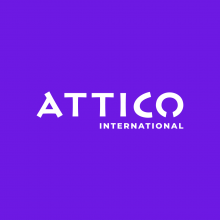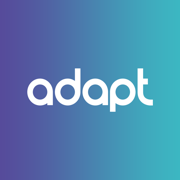
There are 27 Companies in Lithuania
that provide NodeJS Development Services!
Lithuania's ICT sector is evolving, full steam ahead. An increasing number of companies have arrived in the country, drawn by its infrastructure, people, and business-friendly mindset. With some of the fastest and most affordable internet connections in Europe and a tech-savvy population ranking 16th in the world for ICT skills, Lithuania has recently attracted giants such as Google.
Discover Top IT Companies in Lithuania specialized in NodeJS and other related services. Find the best IT service providers for your projects.
Node Js is a JavaScript runtime environment that allows developers to run JavaScript code on the server-side. Unlike traditional server-side technologies like PHP or Ruby, which are typically used for handling server tasks, Node.js enables developers to use JavaScript for both client-side and server-side development.
Handpicked companies • No obligation to hire • 100% risk-free
Featured Companies in Lithuania
This month, the following NodeJS Development companies managed to provide an outstanding service and support. It's worth taking a look.
Explore Top NodeJS Development Companies in Lithuania
Reverbtime Magazine stands as a premier resource for professionals seeking comprehensive insights across multiple sectors.
Services:
We build apps that people love!
Strategy, design, and custom development for SMBs. We build fast, scalable websites and e-commerce that look great, rank well, and convert.
Services:
Baltic Amadeus - technology partner in banking, insurance, transportation, and telco. Client-centric approach, delivering top-quality IT solutions.
Altabel Group offers custom software development, IT consulting and flexible team augmentation for the clients worldwide.
The best technology solutions provider dedicated to creating innovative applications that address the needs of corporate businesses and individuals.
We architect and engineer first-class custom software solutions to meet our clients' business challenges.
IT Staff Augmentation & Tech Recruitment Services: JayDevs helps you skip the sourcing, job ads, and resume screening.
Attico provides Drupal digital experience and web and mobile development services.
Services:
A cluster of 7 IT companies from Lithuania
Contract Square is a wide scope software development company, always focused on the polished end product. Since establishing in late 2018, Contract Sq...
Excellence in development
Your Digital Product Studio
- 1
- 2
Filter NodeJS Development Companies in Lithuania by Cities
Find the right tech company near you or from a specific city. Some of the best companies might be located in smaller cities.
Find more NodeJS Development companies around the world
TechBehemoths is the world's most advanced and user-friendly platform to match IT Companies with real clients without hustle.
The ICT in Lithuania: Overview and Companies Data
In the past 10 years, Lithuania has developed its IT industry and infrastructure. Projects like e-Lithuania, e-residency, and VR Lithuania, among others, transformed the country into a fully digitalized hub in the Baltic region.
The IT Services sector itself plays an important role in the Lithuanian economy, registering a revenue of almost $500 million in 2025. Also, ~4.0% of the entire Lithuanian workforce is enrolled in the IT industry, for those 4200+ digital companies that export their services in 130 countries.
Why Work With Lithuanian IT Companies
Essential e-solutions in Lithuania that enable the digital society to function smoothly were all built by local Lithuanian companies. This enhances the reliability of Lithuanian IT companies not only locally but also worldwide - about this, we will relate a bit later.
The already built digital system in Lithuania already tells a lot about Lithuanian IT companies that perform excellently, and are becoming more and more attractive not only for companies but also for skilled professionals who are enjoying preferential conditions.
So, after all, why should you work with Lithuanian IT companies?!
- Skilled workers who provide high-level digital services
- Open market - that facilitates and eases access to IT resources and companies' services
- Low taxes - compared with other European countries, Lithuania helps local IT and tech companies generate sales by cutting taxes, which can reflect a lower price/project for the end customer.
- A healthy business environment and well-established communication between businesses are assured.
What You Should Pay Attention to When Working With Lithuanian IT Companies
However, working with Lithuanian IT companies can also be tricky. Even though the post soviet reminiscences are not visible, you still can hit Russian Lithuanians that are providing the same IT services, but of a relatively lower quality, and in a very specific manner. Roughly, some of the companies are only benefiting from the developed IT environment in Lithuania, but don’t follow the same guidelines as the vast majority of companies do.
Another challenge is the limited human resources that Lithuanian companies have. The country’s population is just above 2.8 million people, and 6% of it is simply not enough to cover all market demands, so it would be difficult to find an available IT company based in Lithuania to take on a big project or so.
How Developed is the Lithuanian IT Infrastructure
Lithuania ranks among the top European countries with the highest IT infrastructure. As mentioned previously, its digital transformation made the country one of the regional innovation leaders. But even so, the country is still not done yet with developing its IT capabilities.
How Does the Lithuanian IT Industry Perform Compared to the Neighboring Countries?
In the Baltics, Lithuania is a detached leader in IT. Latvia and Estonia are behind simply because they focused on developing other sectors. But the Lithuanian performance is also motivated by people’s attachment to digital technologies. The continuously growing number of digital agencies confirms once again that Lithuania ranks better than neighboring countries.
But speaking about Lithuania as an extension to Europe’s northern region, the country is in tight competition with Latvia and Estonia, which also find themselves somewhere in the first half of the European IT community.
Compared with those two countries, Lithuanian companies will rather provide lower prices for their IT and digital services and products, but at the same time, Lithuania has way more limited resources than Estonia or Finland.
All in all, Lithuania is a great country to consider for digital projects, and local companies' rich experience with digital transformation can make a difference in their projects.
Lithuania's Tech in 2025 - Update
Considering the progress Lithuania has made throughout the last 3 years, it is no wonder that 2022 will be another good period for the ICT and, especially, local IT companies. Lithuania is abundant with news and tech-related events meant to encourage startups and entrepreneurship. As a direct result of continuous efforts invested in ICT, Lithuania got the #10 global position in FinTech and has over 42K ICT specialists employed in the tech sector as of December 2021.
In 2025, the tech sector in Lithuania is experiencing major growth with the help of startup funding, with 167.7 million euros raised. The ICT sector contributes 5.4% to GDP through exports, especially to the US and the UK.
What is NodeJS and what are its benefits for your projects?
Node Js is a JavaScript runtime environment that allows developers to run JavaScript code on the server-side. Unlike traditional server-side technologies like PHP or Ruby, which are typically used for handling server tasks, Node.js enables developers to use JavaScript for both client-side and server-side development. Below we’ll dive deeper into the types of projects built with it, and how companies can leverage it for their projects:
Node.js is built on the V8 JavaScript engine from Google, making it incredibly fast and efficient. It uses an event-driven, non-blocking I/O model, which makes it ideal for building scalable and real-time applications. Node.js is particularly well-suited for projects that require high concurrency, such as web applications, APIs, chat applications, streaming services, and more. It has a large and active community, which has led to a rich ecosystem of libraries and packages available via npm (Node Package Manager), simplifying development tasks.
As for the type of projects that can be built using Node.js, we can name the following:
- Web Applications: Many web applications are built using Node.js, often using web frameworks like Express.js. These applications can range from small personal websites to large-scale, enterprise-level platforms.
- APIs (Application Programming Interfaces): Node.js is commonly used to create RESTful APIs that allow different services or applications to communicate with each other. This is essential for building services that provide data to mobile apps, websites, and other clients.
- Real-time Applications: Node.js is favored for real-time applications, such as chat applications, online gaming, and collaborative tools. The event-driven architecture of Node.js is well-suited for handling multiple concurrent connections.
- Streaming Services: Media streaming platforms and services that deliver audio and video content use Node.js to efficiently manage and serve media files to users.
- IoT (Internet of Things): Node.js is used in IoT projects to handle data collection from sensors and devices, process that data, and communicate with cloud services.
- Serverless Functions: Node.js is a popular choice for building serverless functions or AWS Lambda functions due to its lightweight and quick startup times.
Node.js is a versatile technology that can be effectively utilized in both smaller and larger projects, but its suitability hinges on several key factors.
For smaller projects, Node.js offers distinct advantages. Its event-driven, non-blocking I/O model allows developers to rapidly prototype and develop applications. This makes it an excellent choice for creating functional prototypes, minimum viable products (MVPs), or simple web tools swiftly.
Node.js's efficiency in handling I/O operations can lead to responsive user experiences, which is valuable for small-scale applications like personal websites, blogs, or straightforward web tools. Moreover, Node.js itself is lightweight, making it suitable for projects with minimal hardware or resource requirements. It doesn't impose significant overhead, making it a cost-effective option.
Node.js is also well-suited for serving as a backend for Single-Page Applications (SPAs), handling API requests, and serving static files efficiently. Its ability to use JavaScript both on the server and client sides can reduce development costs by enabling code reuse and a single development skill set.
For larger projects, Node.js remains a compelling choice for various reasons. Its ability to handle a large number of concurrent connections positions it favorably for projects with high traffic and user loads. It's designed to scale efficiently, allowing it to distribute workloads across multiple servers or containers, making it scalable and robust.
In larger applications with complex functionality, Node.js can be employed to build microservices that communicate efficiently with each other. This modular approach enhances maintainability and facilitates development on a larger scale.
Node.js's event-driven nature also makes it an ideal candidate for larger projects requiring real-time features. It excels in managing multiple simultaneous connections, making it suitable for applications such as messaging platforms, online gaming, or collaborative tools.
Additionally, Node.js continues to offer development speed advantages regardless of project size, which can be particularly valuable in meeting tight project deadlines.
Furthermore, for larger projects with JavaScript as the primary language on both the frontend and backend, Node.js facilitates streamlined development processes, code sharing, and collaboration among teams working on different parts of the application.























